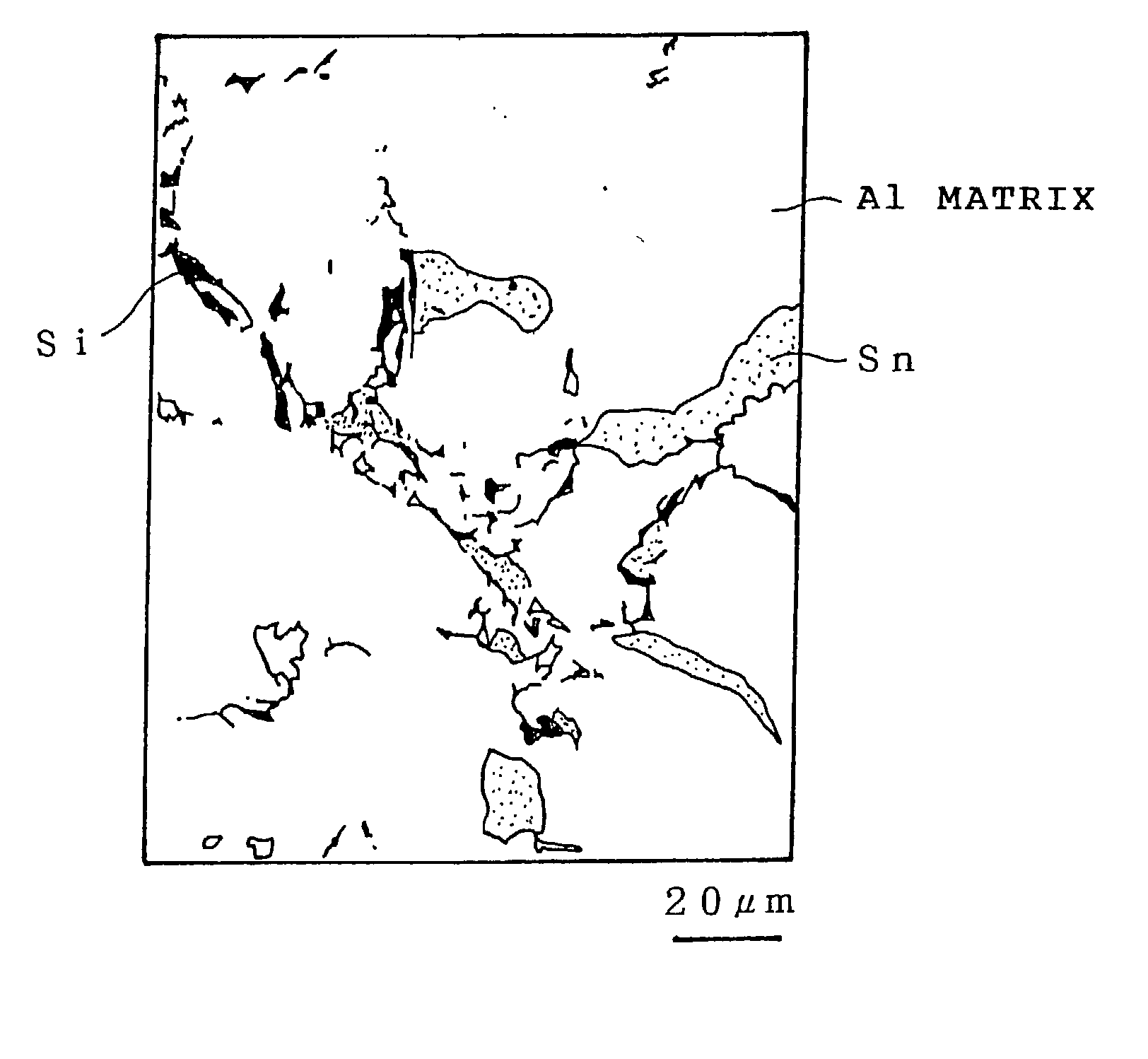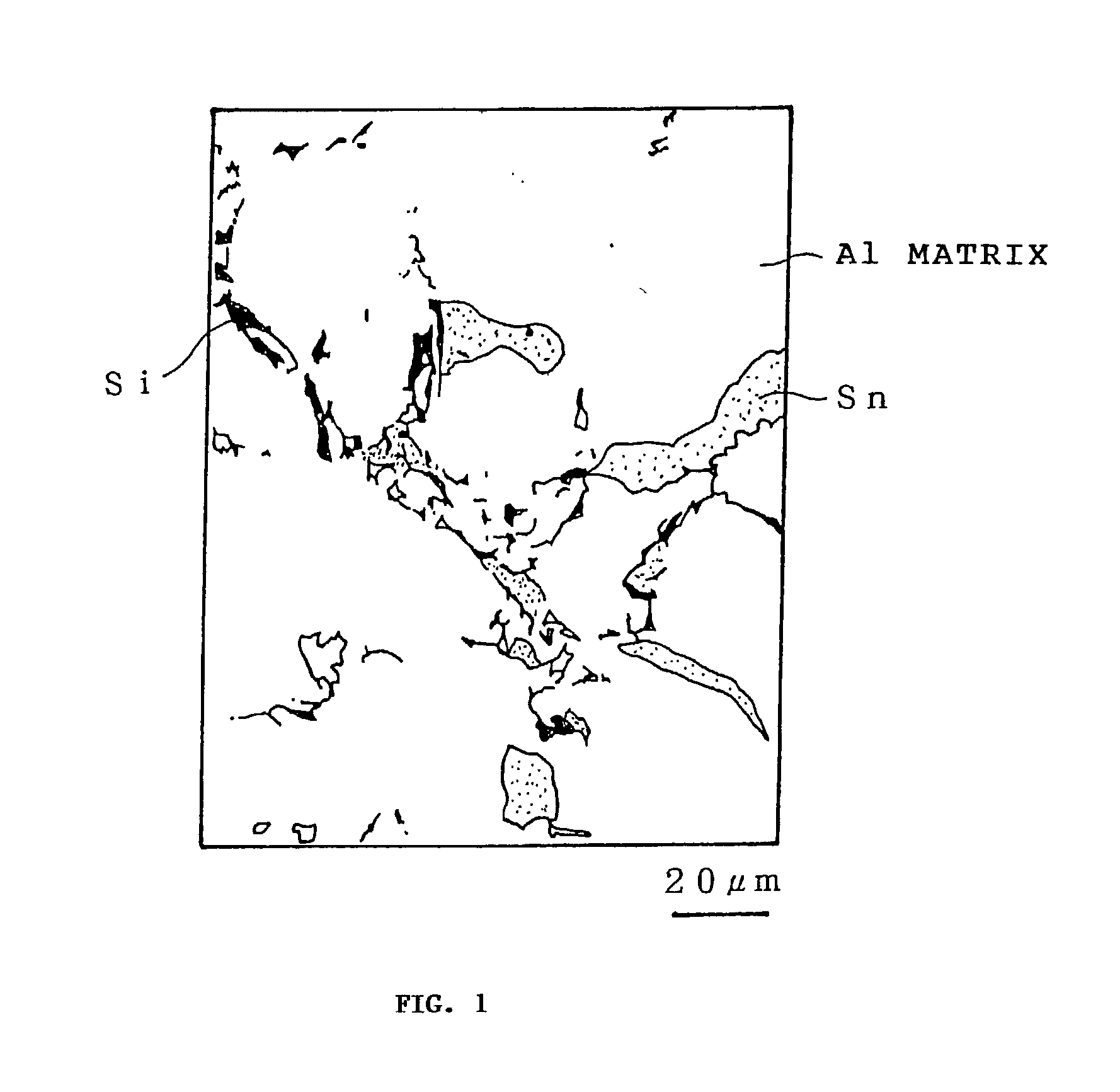Aluminum bearing-alloy
a bearing alloy and alloy technology, applied in the field of aluminum bearing alloys, can solve the problems of hardness deterioration at high temperature, hardness that cannot be uniformly dispersed in the alloy, and harm to the environmen
- Summary
- Abstract
- Description
- Claims
- Application Information
AI Technical Summary
Benefits of technology
Problems solved by technology
Method used
Image
Examples
Embodiment Construction
[0032] Hereinafter, there will be described embodiments of the invention.
[0033] A method of producing example bearings is as follows.
[0034] (A) Aluminum Bearing-Alloy Containing Sn
[0035] A Sn-containing aluminum bearing-alloy having a predetermined composition is melted and cast by continuous casting to be a plate having a thickness of 15 mm. As shown in FIG. 1, in the continuously cast plate of the bearing-alloy, Si grains are crystallized at dendrite boundaries of the Al matrix and in a Sn phase.
[0036] The continuously cast plate of the aluminum bearing-alloy is subjected to a grinding treatment to remove the surface region in which a segregation occurred, and subsequently to continuous cold rolling to produce a plate having a thickness of 6 mm, followed by annealing to relieve strain and stabilize additive elements.
[0037] Thereafter, a thin aluminum sheet as a bonding layer, is bonded to the aluminum bearing-alloy plate by roll-bonding, and subsequently bonded to a steel back to ...
PUM
| Property | Measurement | Unit |
|---|---|---|
| grain size | aaaaa | aaaaa |
| grain size | aaaaa | aaaaa |
| size | aaaaa | aaaaa |
Abstract
Description
Claims
Application Information
 Login to View More
Login to View More - R&D
- Intellectual Property
- Life Sciences
- Materials
- Tech Scout
- Unparalleled Data Quality
- Higher Quality Content
- 60% Fewer Hallucinations
Browse by: Latest US Patents, China's latest patents, Technical Efficacy Thesaurus, Application Domain, Technology Topic, Popular Technical Reports.
© 2025 PatSnap. All rights reserved.Legal|Privacy policy|Modern Slavery Act Transparency Statement|Sitemap|About US| Contact US: help@patsnap.com


